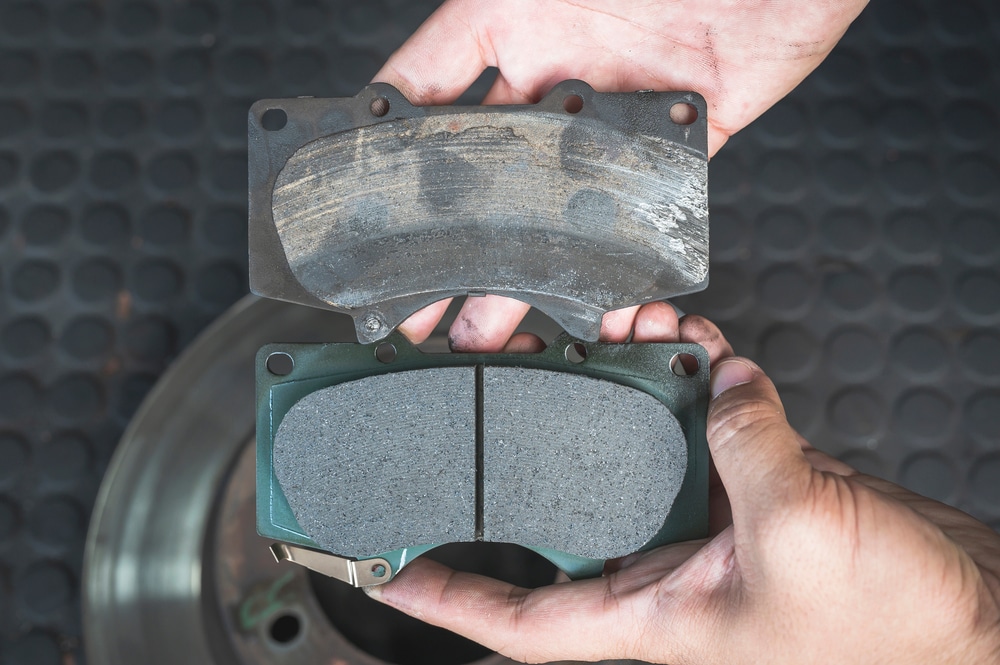Audi Oil Type
When it comes to maintaining the peak performance of your Audi, you need to keep a close eye on your Audi’s oil.
At Quality Car Service, our Audi specialists understand how using the correct type of oil can make a difference in your vehicle’s longevity, efficiency and performance.
To help you, we’ve put together this comprehensive guide to shed light on the importance of selecting the right oil and keeping your Audi in top condition.
Why is it essential to use the correct type of oil in an Audi?
Audi’s are renowned for their precision engineering and high-performance capabilities.
The right Audi oil ensures the engine runs smoothly, reducing friction and wear on your vehicle’s components. Using the wrong oil can compromise the vehicle’s performance, decrease fuel efficiency, and even lead to engine damage over time.
At Quality Car Service, we’ve serviced countless Audis and can confirm the difference the right oil makes to the performance and longevity of your vehicle. It’s not an area you want to neglect.

The different types of oil available for Audis
There are three main types of Audi oil that you might consider for your vehicle:
- Conventional Oil: Derived directly from crude oil with minimal processing. It’s usually less expensive but may not offer the advanced protection needed for high-performance vehicles like your Audi.
- Synthetic Oil: Synthetic oils provide superior protection, especially at high temperatures. They resist breakdown better than conventional oils and are often recommended for most modern Audi models.
- Synthetic Blend: A mix of conventional and synthetic oils. This offers some of the benefits of synthetic oil but at a more affordable price point.
When considering the best oil for your Audi, always refer to the vehicle owner’s manual or speak to a specialist, like us at Quality Car Service.

Audi’s recommended oil viscosity
Oil viscosity, represented by numbers like 5W-30 or 10W-40, refers to the oil’s resistance to flow.
For your Audi, the recommended oil viscosity is usually found in your owner’s manual.
The viscosity recommendation is based on your Audi’s engine design and the weather conditions it’ll typically operate in.
Confused about what oil your Audi needs? Call Quality Car Service today, our experts are here to help.
How the oil viscosity rating affects engine performance
Oil viscosity rating is essentially a measure of how ‘thick’ or ‘thin’ the oil is at certain temperatures. When it comes to Audi oil terminology, the two numbers, like 5W-30, can be broken down as follows:
- The first number, followed by the letter ‘W’ (which stands for winter), represents the oil’s viscosity at cold temperatures. Simply put, the lower this number is, the thinner the oil (and the better it performs in cold conditions).
- The second number represents the oil’s viscosity at high temperatures. The higher this number, the thicker the oil remains at these temperatures, ensuring protection during demanding drives.
Getting the right viscosity is crucial for Audi engines. If it’s too thick, the oil may not flow as freely, causing your engine to work harder. Too thin won’t provide adequate protection against wear and tear.
Choosing the correct viscosity will give you optimal engine performance, fuel efficiency, and longevity.
Audi recommended oil brands
Audi often has specific recommendations for oil brands and specifications, particularly for their high-performance models.
While the exact brand or specification might vary depending on the model and year, Audi typically recommends synthetic oils that meet certain European specifications for optimal engine performance.
It’s always best to refer to your owner’s manual or check with trusted Audi specialists like Quality Car Service to get precise recommendations for your vehicle.
Are there any differences in oil requirements between petrol and diesel engines in Audi vehicles?
When it comes to the oil requirements for petrol and diesel engines, there are a few differences.
- Petrol Engines: Audis with petrol engines usually require oils that can handle higher RPMs and temperatures. For this reason, we recommend synthetic oils as they offer the best protection under these demanding conditions.
- Diesel Engines: Audis with diesel engines usually produce more soot and have higher compression ratios than petrol engines. Hence, they need an oil that offers higher detergent properties and can handle the added stress. You can purchase diesel-grade oils specifically formulated to meet these requirements, ensuring your diesel Audi engine runs cleanly and efficiently.
How often should the oil be changed in my Audi?
Changing your Audi oil regularly is essential for maintaining the performance and health of your vehicle’s engine.
At Quality Car Service, we recommend an oil change every 10,000 miles or once a year (whichever is hit first). However, this can vary based on the model, driving conditions, and the type of oil you’ve used.
For example, synthetic oils usually last longer than conventional oils, allowing for extended intervals between changes.
However, it’s always wise to refer to your Audi’s owner manual or consult with Audi specialists, like the team here, for specific guidance tailored to your vehicle’s year and model.
Considerations for Audis with high mileage or older models
For older Audi models or those with higher mileage, there are a few oil-related considerations that you need to be aware of to keep your vehicle in prime condition:
More Frequent Oil Changes: Due to a higher potential for wear and tear, older engines can benefit from more frequent oil changes. Doing so will help you maintain optimal performance from your Audi.
Use High Mileage Oils: There are a handful of Audi oils formulated specifically for high-mileage vehicles. They contain additives that help condition your engine’s seals, reducing oil leaks and burn-off.
Have Regular Checks: Older engines can often use oil at a faster rate. If you’ve got an older vehicle, we advise checking the oil level more frequently, ensuring your Audi engine is never running low.
By keeping these considerations in mind, you’ll keep your older (or high mileage) Audi engine in great condition.
Engine oil for performance or sport-oriented Audi models
If you’ve got a performance or sport-oriented Audi model, such as the S and RS series, it most likely has unique engine requirements:
Heat Management: High-performance engines typically generate more heat. A top-quality synthetic Audi oil that can withstand higher temperatures without breaking down is essential.
Protection under Stress: High-performing engines often operate under high-stress conditions, whether it’s higher RPMs or rapid acceleration. The oil you choose should offer excellent lubrication, reducing wear and tear under these demanding situations.
Viscosity: Some Audi sports models might have specific viscosity requirements for optimal performance. Always refer to your owner’s manual or consult with specialists like those at Quality Car Service.
Consequences of using the wrong type of oil in an Audi
Using the incorrect Audi oil can lead to several issues:
- Decreased Engine Efficiency: Your Audi engine might not operate as smoothly, potentially reducing fuel efficiency and power.
- Increased Wear and Tear: Using the wrong Audi oil might not provide adequate protection, leading to faster wear of your vehicle’s components.
- Engine Damage: In severe cases, using the wrong oil in your vehicle can cause significant engine damage, resulting in costly repairs.
- Voided Warranty: With many newer Audi models, using non-recommended oils might void your vehicle’s warranty. It’s not worth the risk.
How to check the oil level in an Audi
To check your vehicle’s oil level, you can do the following:
- Ensure your engine is off and has been resting for a few minutes. This allows the oil to settle.
- Locate the oil dipstick under the hood. Pull it out and wipe it clean with a cloth or paper towel.
- Fully place the dipstick back into the tube, then pull it out again. The oil level should sit between the ‘min’ and ‘max’ marks (you’ll see these on the dipstick).
- Look at the colour of your oil. Fresh oil is typically amber, while older oil turns darker. If the oil has particles or looks very thick, it might be time for a change.
If you notice any issues with the oil or would like a professional opinion, call the team here at Quality Car Service.
Audi engine oil maintenance tips
If you want to keep your Audi in peak condition, follow these simple oil maintenance tips:
Timely Changes
Stick to the recommended oil change intervals for your Audi. This ensures that your engine remains well-lubricated and free from contaminants.
Use Quality Filters
Using a good quality oil filter ensures contaminants are removed, prolonging the life of your Audi oil and engine.
Consistent Brand
Whenever possible, use the same brand and type of oil for every change. This ensures consistent performance and the protection of your Audi’s engine.
Stay Alert
Keep an eye out for any unusual engine noises or performance drops. These could be signs your Audi has an oil-related issue.
Summary
Selecting the right Audi oil isn’t just about ensuring smooth drives; it’s a pivotal step in prolonging the life of your vehicle.
From an A1 to RS6, each has its own unique oil requirements that you need to know about to get optimal performance from your vehicle.
While your Audi owner’s manual and manufacturer’s guidelines offer a solid foundation, seeking advice from trusted Audi specialists, like ours at Quality Car Service, guarantees that your car gets the bespoke care it deserves.
Need help with your Audi oil? Call us on 01908 418392 and let our Audi specialists help you.



